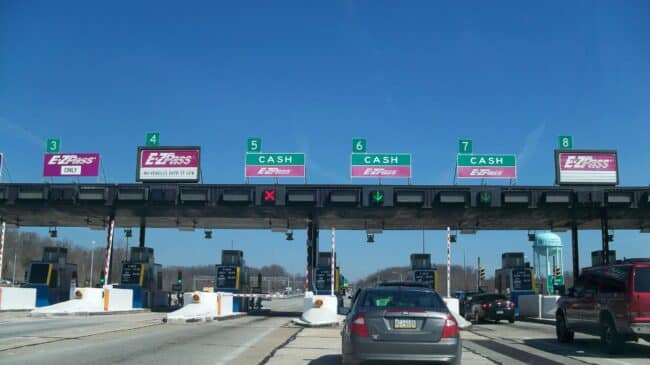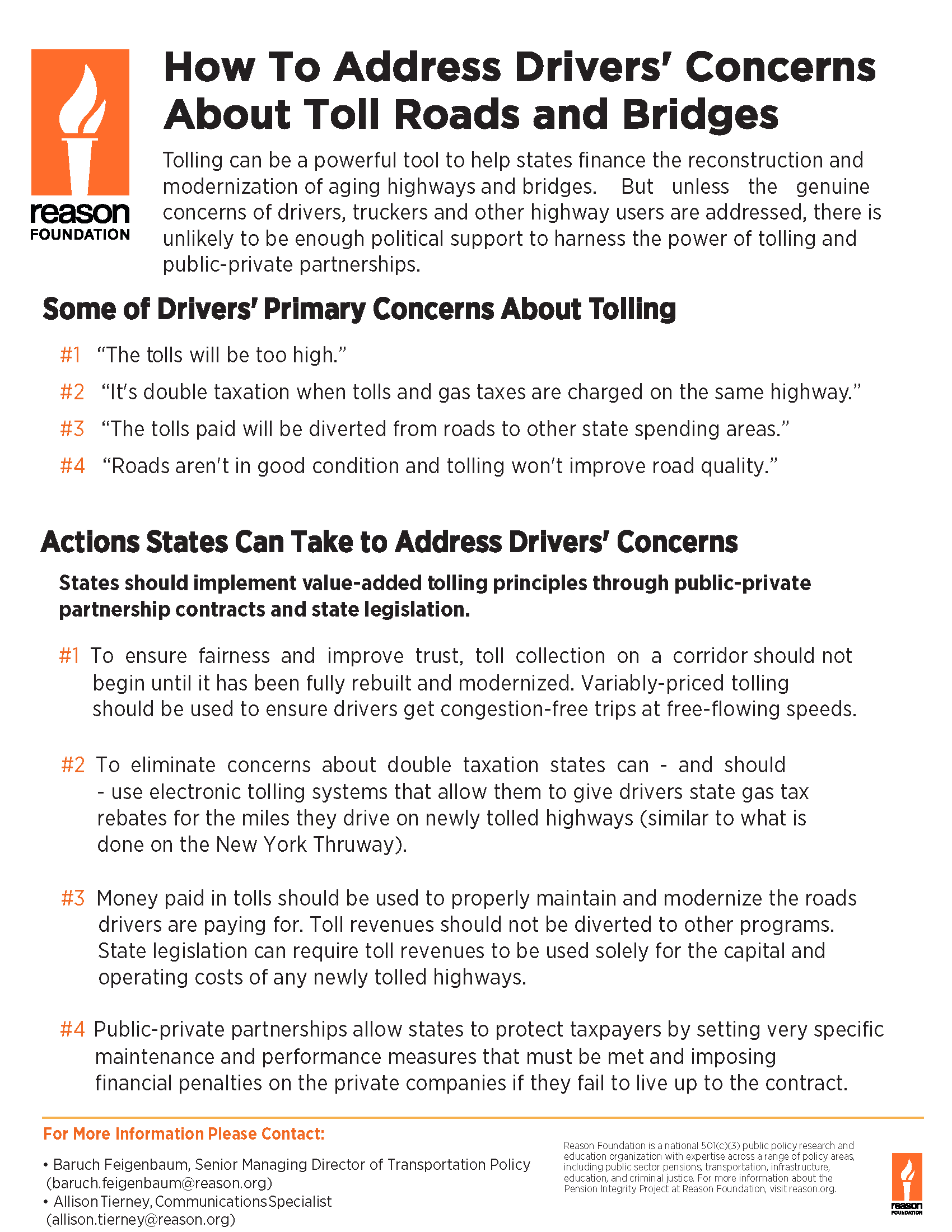Tolling can be a powerful tool to help states finance the reconstruction and modernization of aging highways and bridges. But unless the genuine concerns of drivers, truckers and other highway users are addressed, there is unlikely to be enough political support to harness the power of tolling and public-private partnerships.
Some of Drivers’ Primary Concerns About Tolling:
- “The tolls will be too high.”
- “It’s double taxation when tolls and gas taxes are charged on the same highway.”
- “The tolls paid will be diverted from roads to other state spending areas.”
- “Roads aren’t in good condition and tolling won’t improve road quality.”
Actions States Can Take to Address Drivers’ Concerns:
States should implement value-added tolling principles through public-private partnership contracts and state legislation.
- To ensure fairness and improve trust, toll collection on a corridor should not begin until it has been fully rebuilt and modernized. Variably-priced tolling should be used to ensure drivers get congestion-free trips at free-flowing speeds.
- To eliminate concerns about double taxation states can – and should – use electronic tolling systems that allow them to give drivers state gas tax rebates for the miles they drive on newly tolled highways (similar to what is done on the New York Thruway).
- Money paid in tolls should be used to properly maintain and modernize the roads drivers are paying for. Toll revenues should not be diverted to other programs. State legislation can require toll revenues to be used solely for the capital and operating costs of any newly tolled highways.
- Public-private partnerships allow states to protect taxpayers by setting very specific maintenance and performance measures that must be met and imposing financial penalties on the private companies if they fail to live up to the contract.
Download Here: How to Address Drivers Concerns About Toll Roads and Bridges


